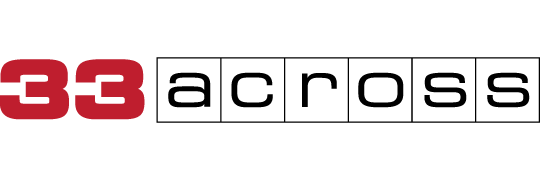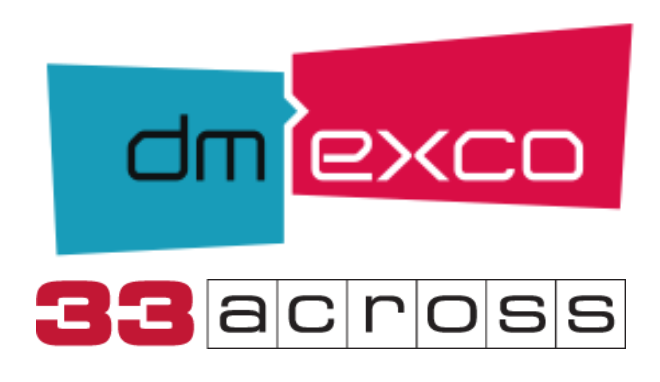What was the buzz around the office last week? Quality assurance with blockchain technology, new concerns with whitelisting, and preparation steps for next year's GDPR.
Blockchain technology has the potential revolutionize programmatic advertising. Blockchain technology could streamline the quality assurance process between advertisers and publishers. This could also minimize a lot of back and forth between trading desk, publishers, and brands. According to NASDAQ, blockchain-based verification systems are already in use and are on the rise.
Read More
Topics:
publishers,
advertisers,
transparency,
blockchain
What was the buzz around the office last week? Facebook is offering more transparency and ad control, Apple is reducing their cookie window, and what it will take for programmatic tv to win.
Ad fraud has some CMOs skeptical about programmatic advertising. Instead, marketers are using platforms such as Facebook and Google over programmatic as they know where their dollars are going. Digiday explains how programmatic has it’s place in digital marketing however the technology alone cannot account for all branding and storytelling.
Read More
Topics:
header bidding,
publishers,
facebook,
advertisers,
transparency
What was the buzz around the office last week? Facebook is offering more transparency and ad control, Apple is reducing their cookie window, and what it will take for programmatic tv to win.
Facebook now has a way for advertisers to target consumers offline. The social media platform recently announced that businesses can now build audiences of of people who have made offline purchases. With the new tool, advertisers can also create lookalike audiences of potential shoppers based on recent in-store visits. AdExchanger explains how shoppers are expecting for brands to track their shopping behavior.
Read More
Topics:
publishers,
facebook,
advertisers,
transparency,
blockchain
What was the buzz around the office last week? Facebook is offering more transparency and ad control, Apple is reducing their cookie window, and what it will take for programmatic tv to win.
Facebook is increasing transparency and giving advertisers more control over where ads show up. The platform recently announced that they will tighten guidelines on the type of content that can be monetized. With that, publishers must prove themselves credible and sites featuring misinformation or fake news will be blocked from monetizing. AdExchanger explains the changes in greater detail and how Facebook’s lack of transparency in the past pushed big advertisers away.
Read More
Topics:
programmatic tv,
publishers,
facebook,
advertisers,
transparency
Bratwurst, beer, and even tattoos being done onsite. Throughout the amazing experiences offered to attendees at DMEXCO 2017, ad tech and its ever growing landscape remained the constant. Hot topics including viewability, transparency, and GDPR were the focus of the thousands of publishers, advertisers, and ad tech companies in attendance. Although I had a great time in Cologne connecting with partners; customer experiences were the key focus of DMEXCO. Here are my takeaways:
Read More
Topics:
publishers,
viewability,
advertisers,
time-in-view,
transparency,
dmexco
What was the buzz around the office last week? Verizon's Oath business unit offers rewards, AppNexus and Index Exchange are at the top, and publishers find balance between user experience and ad units.
Verizon will soon feed its consumer’s web-browsing data, app use, and location data to its recently created business unit Oath. Customer’s who opt into sharing their data will earn credits for concert tickets, movie premiers phone upgrades, and more. MediaPost explains how Verizon added 600,000 new subscribers and generated nearly $90 billion in revenue the past quarter.
Read More
Topics:
header bidding,
publishers,
data,
advertisers
What was the buzz around the office last week? MoPub gets more measurement tools, Buzzfeed opens their site up to display advertising, and the new ad-blocking Chrome.
Twitter-owned MoPub has recently updated their software, allowing publishers to provide better measurement to advertisers. With advertisers under intense pressure to measure performance, MoPub has integrated with Integral Ad Science as well as Moat to provide specifications. With viewability being a top metric, The Drum details how ad tech is shifting towards more measurement standards.
Read More
Topics:
programmatic,
mobile,
google,
viewability,
advertisers,
transparency
What was the buzz around the office last week? Google issues refunds from fake ad traffic, the FTC tells Amazon and Whole Foods to move forward, and mobile programmatic's expected rise.
As Google works towards offering marketers more transparency, they are issuing refunds for ads that ran on websites with fake traffic. These ads were brought using Google’s DoubleClick Bid Manager. Google has also offered to reimburse its “platform fee,” which typically accounts for up to 10% of a total ad buying purchase. While this may seem like a honorable move by Google, The Wall Street Journal details how some advertising advertising are unsatisfied with the gesture.
Read More
Topics:
programmatic,
mobile,
header bidding,
google,
advertisers,
transparency
What was the buzz around the office last week? Mobile header bidding experiences 3-digit growth, Facebook offers new ad services, and Google explores subscription options with publishers.
Header bidding is seeing growth within mobile channels. According to a report published by PubMatic, mobile header bidding has grown 285% year-on-year Q2. The largest spike was seen among news publishers. The Drum breaks down the report including how the industry-wide focus on transparency and the use of PMPs is being credited for the rise.
Read More
Topics:
header bidding,
publishers,
advertisers,
transparency
What was the buzz around the office last week? A legal win for advertisers and third-party cookie tracking, solving multi-attribution woes, and how publishers are winning during back-to-school.
Advertisers have a new legal win, a US District Judge recently ruled that the responsibility to keep browsing history private falls on the user. This is great for advertisers who use third-party cookies to serve their ads. While this ruling may be a loss for privacy advocates, it is a total win for companies like Facebook, AdExchanger explains more.
Read More
Topics:
publishers,
viewability,
advertisers










